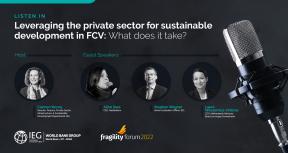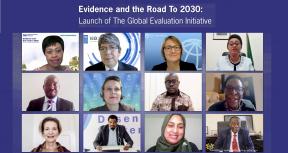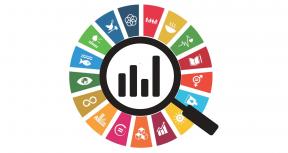In this Conversations post, we interview Caren Grown, Senior Director, Gender at the World Bank Group, about how evaluation can contribute to strengthening the World Bank Group’s work on gender.
Listen to the brief interview:
Question: IEG has increased its efforts to assess gender impacts over the last few years. How has this contributed to your work, and where, if at all, do you see room for improvement?
I think this is a way to help global practices in the World Bank Group understand where there are gaps between males and females that are relevant to the sector, where there might be unintended consequences, positive or negative, and where the practice can also do better to more explicitly recognize how they can address key gaps.
Caren Grown: I really appreciate that IEG has really stepped up in this area. The first evaluation that I worked with or got to know from IEG was the evaluation of how gender issues have been considered across the World Bank Group. That evaluation coincided with the development of the new gender strategy at the bank. While the alignment might have been slightly off, I thought it was a really useful process to engage with the evaluation team here. What was useful about it was to talk about the alignment of criteria and metrics we use for looking at the portfolio. It was also useful to figure out what kind of information that we needed to bring to bear in terms of the analysis of the portfolio. I think it also helped us think a little bit more on the strategy side about how we could respond to the kind of issues that IEG was going to be addressing once that evaluation was complete.
I also have to say I really appreciate that IEG has brought a gender lens to other sectoral issues. I think this is a way to help global practices in the World Bank Group understand where there are gaps between males and females that are relevant to the sector, where there might be unintended consequences, positive or negative, and where the practice can also do better to more explicitly recognize how they can address key gaps.
Question: What do you expect from a good evaluation and what should be avoided?
Caren Grown: I think it's really important to agree on the approach, to agree on the ground that will be covered, to agree on the criteria by which the portfolio or specific projects will be evaluated, to understand that sometimes, evaluations need to be flexible because the Bank Group has so much change in it. It's really difficult, if we've changed, for instance, an approach and a practice or we have a new strategy, to evaluate the new criteria relative to something that has been developed in a previous era. I think flexibility and understanding circumstances is really important. I also expect, and this would be my ideal evaluation, that there would be clear transparency, opportunities for dialogue, and then a spirit of learning. What I think is not good about evaluation is when it's done in the spirit of "gotcha" or, "I'm going to find this flaw," but if it's done in the spirit of learning, I think it makes the evaluation better and it makes the work that we do at the World Bank Group better.
Question: What would you recommend IEG as next steps in terms of increasing attention to gender in evaluation and in support of developing group gender agenda?
Caren Grown: I'd like to see IEG as maybe not the closest partner because the IEG evaluations come at the end of project implementation or a strategy period, but what I would really appreciate is working with IEG with OPCS, with the GPs, the monitoring, the evaluation teams, to ensure that we have a clear alignment of the gender tag on our side and the gender tag on the IEG side. We have a clear sense that we're collecting the right information, that is the information that both sides are going to be using in monitoring and evaluation processes, and that together, we would agree on the objectives of using the information that we can get from the tag and the flag going forward, and again, seeing it in the spirit of, "How can we make our operations, our advisory work, our technical assistance work even stronger and better for the client and ultimately, for the women and men that we serve?"





Comments
I am a Monitoring and…
I am a Monitoring and Evaluation Assistant for an African Development Bank funded programme Building Resilience Against Food and Nutrition Insecurity in the Sahel/P2RS in The Gambia. The project targets rural vulnerable women and youth in agriculture and one of the key activities is to preparation and utilization of a gender strategy in programme implementation. This strategy has been finalised by the Women's Bureau and the Bureau is implementing the strategy which involves awareness creation and trainings covering gender awareness, mainstreaming, budgeting for gender and of course M&E for Gender. It is in this connection that I wish to exchange on how we can effectively monitor gender impact at the level of the programme.
Add new comment